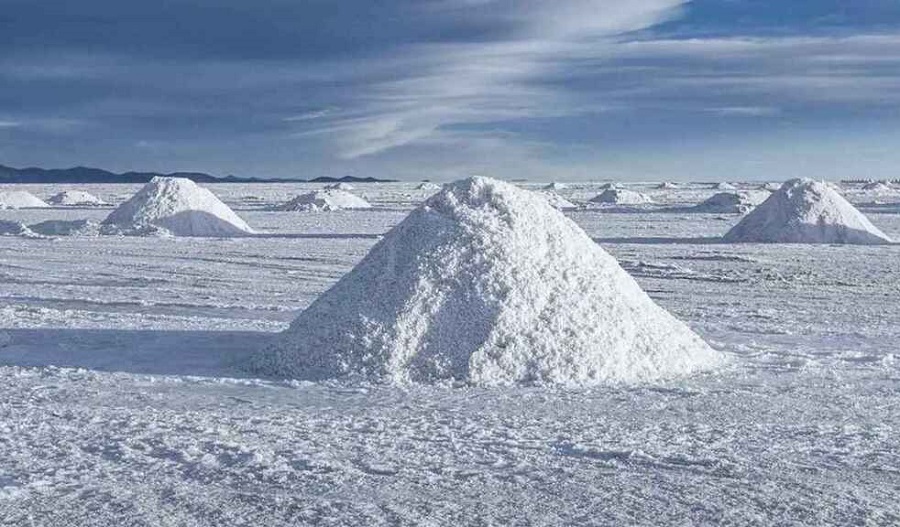RIO DE JANEIRO, BRAZIL – This comes at a time when political disputes are raging in Chile after the government announced a national and international public call in October 2020 for the signing of specific exploitation contracts for the development and extraction of deposits in the country.
Yesterday, Wednesday, Chile’s Ministry of Mines teams and Minister Juan Carlos Jobet met with representatives of president-elect Gabriel Boric to try to reach an agreement on the bidding process.

There were disagreements over quotas and other aspects, but both parties agreed that they would try to unify criteria: Lithium, like copper, is considered a key mineral for the global energy transition, and Chile has the largest reserves of this mineral.
BOLIVIA
Bolivia has 21 million tons of lithium reserves, which are also among the world’s largest and are found mainly in the Uyuni salt flats in Potosí.
Last November, the Bolivian government signed memoranda of “understanding and confidentiality” with 8 companies to conduct pilot tests of direct lithium extraction (DLE) technologies in the brines of Bolivia’s Uyuni, Pastos Grandes and Coipasa salt flats.
The companies were CATL BRUNP & CMOC, Fusion Enertech, EnergyX, Tecpetrol, Lilac Solutions, CITIC GUOAN/CRIG, TBEA Group and Uranium One Group from the United States, China, Russia and Argentina.
Yesterday, the Bolivian government stated that the application of DLE technology will expedite the industrialization process of this resource and achieve the goal of producing derivatives on an industrial scale by 2025.
Deputy Minister of High Energy Technologies Álvaro Arnez said that DLE could “accelerate” the use of lithium and give it added value through its industrialization.
“This will allow us to take a qualitative leap and achieve industrial production of lithium hydroxide and battery cathodes by the end of 2024 or early 2025,” Arnez said in a statement from the Ministry of Hydrocarbons and Energy.
The companies “were not authorized to extract lithium from the country’s salt flats,” they were only granted “certain quantities of brine in order for them to carry out their tests and present the results before April,” he said.
ARGENTINA
In Argentina, South Korean company Posco announced a US$830 million investment to extract lithium from the Salar del Hombre Muerto.
The announcement was made after a meeting between the Argentine government’s Chief of Staff Juan Manzur and Posco Argentina CEO KwangBok Kim.
The project is expected to be completed in 2024 and will have a production capacity of 25,000 tons of lithium hydroxide per year, “enough to power the batteries of 600,000 electric vehicles.”
The government has pledged that the initiative will comply with environmental regulations and that it will support the company to ensure that Argentina’s access to the resources is “a success.”

